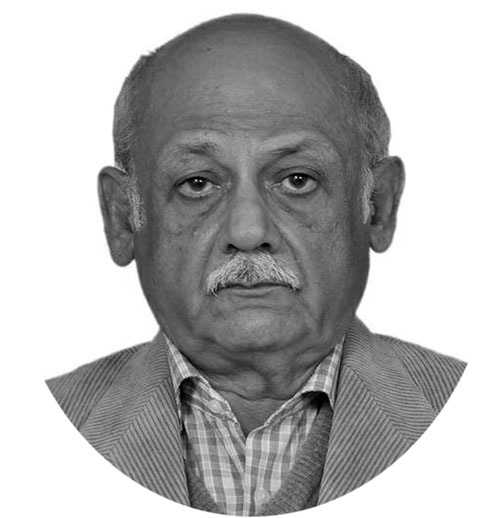Pakistan’s Taliban policy past, present and future
Taliban are on the march again in Afghanistan. After the American with drawal they have captured about seventy percent of the territory in Afghanistan and their relentless onslaught continues.
The Afghan army trained and equipped by the USA is surrendering before the advancing Taliban tsunami sometimes even without a fight and it appears that pretty soon the Taliban flag will be flying from the ramparts of Kabul and Afghanistan will once again be in the brutal iron grip of the Taliban.
The first Taliban Govt. in Kabul was primitive, brutal and bloody and only three countries in the world accepted this archaic and bloodthirsty regime of Mullah Omar that is Pakistan, Saudi Arabia and UAE.
This time around the Saudis don’t seem to have much love for the Taliban and the UAE govt. has also not shown any interest that leaves only Pakistan with a long history of a love hate relationship with the barbaric horde called Taliban.
In the present scenario it may not be possible for Pakistan to change its Policy toward the Taliban firstly because it views its support for the Taliban as a way to exert political influence over Afghanistan.
The anti-Pakistan rhetoric spewed frequently by Ashraf Ghani describing Pakistan as the “ Center of Taliban” and openly accusing Pakistan of treating wounded Taliban fighters and even going to the extent of alleging that the Pakistan Air force is providing air cover to the Taliban forces has been debunked and refuted by the foreign office.
It is an open secret that Pakistan has a long history of military and political support for different warring factions in Afghanistan going as far back as the 1970s.
During the decade of the 80s Pakistan was host to more than three million Afghan refugees and served as the most significant frontline state and it was a secure base for the mujahidin fighting against the Soviet occupation of their country.
Pakistan also acted as the most important American ally and confident in the Afghan war against the USSR.
The USA through the CIA provided some Two to Three billion dollars’ worth of secret assistance to the mujahidin and trained over 80,000 Afghan fighters to confront the Soviet forces.
After the withdrawal of the Soviet forces in 1989 serving and retired Pakistani officers continued to provide training and advisory services in training camps in Afghanistan and eventually to Taliban troops.
The Name of a serving Pakistan officer calledColonel Sultan Amir Tarar is very well known AKA Colonel Imam was an army officer and a guerilla operations specialist. Famous spook of the ISI Col. Tarar or better known as Colonel Imam became legendary who helped, trained and even led the Taliban in battle.
Two senior Pakistani officers and at one time heads of the ISI that is General Hamid Gul and General Jawaid Nasir are well known for their sympathies and support of the Taliban.
Throughout the war against the communist forces of Russia in Afghanistan Pakistan showed a mix of internal and external concerns.
The Pakistani leadership civil and military wanted leverage against its hostile eastern neighbor, India getting “Strategic depth” that is a secure Afghan frontier or a pro Pakistan regime in Kabul to permit a concentration of forces on the borders with India and to gain economic benefits with stronger political and economic links to central Asia.
If Afghanistan could provide these conditions we could have a strong base to pursue our objectives in Kashmir and this would give us greater security against India.
During the struggle against the occupying soviet troops in Afghanistan Pakistan actively promoted the emergence of a government in Afghanistan that would be pro Pakistan.
Pakistan threw its support behind the Hizb-i-Islami led by the warlord or the Mujahidin leader called Gulbadin Hikmatyar a Pashtun dominated guerilla group that projected an Islamist rather than a nationalistic agenda.
The USA had given Pakistan full liberty to distribute its covert assistance in weapons and other equipment, Pakistan managed to provide the lion’s share to Hikmatyar.
Pakistan’s favorite Hikmatyar failed miserably to take control of Kabul and this left Pakistani policy in doldrums in 1993-4 and he search for new partners started in real earnest.
This was the time of a radical shift in Policy under Benazir Bhutto. She decided to move away from Hikmatyar and General Naseer ullah Babar was now in the driving seat who created the Afghan Trade Development cell in the interior ministry to promote trade routes to Central Asia and to provide funds to the Taliban govt. of Mullah Omar.
The state owned PTCL set up a telephonic network in Afghanistan and the PWD repaired roads and provided electricity lines.
The Frontier Corps set up a wireless network, the CAA repaired Kandahar airport and Radio Pakistan provided technical support and services to the Taliban’s official radio channel called Radio Shariat. Finally, the contradiction between the interests of Afghanistan and Pakistan is an enduring one.
While many in Pakistan would like to turn Afghanistan into a protectorate, Afghans deeply value their independence. All Afghan sovereigns, including the Taliban, will inevitably look for partners to balance Pakistan. The current condition is very fluid.
Most likely Afghanistan is moving towards civil war. That could be detrimental not merely for Afghans but for Pakistan too.
—The writer is Professor of History, based in Islamabad.










